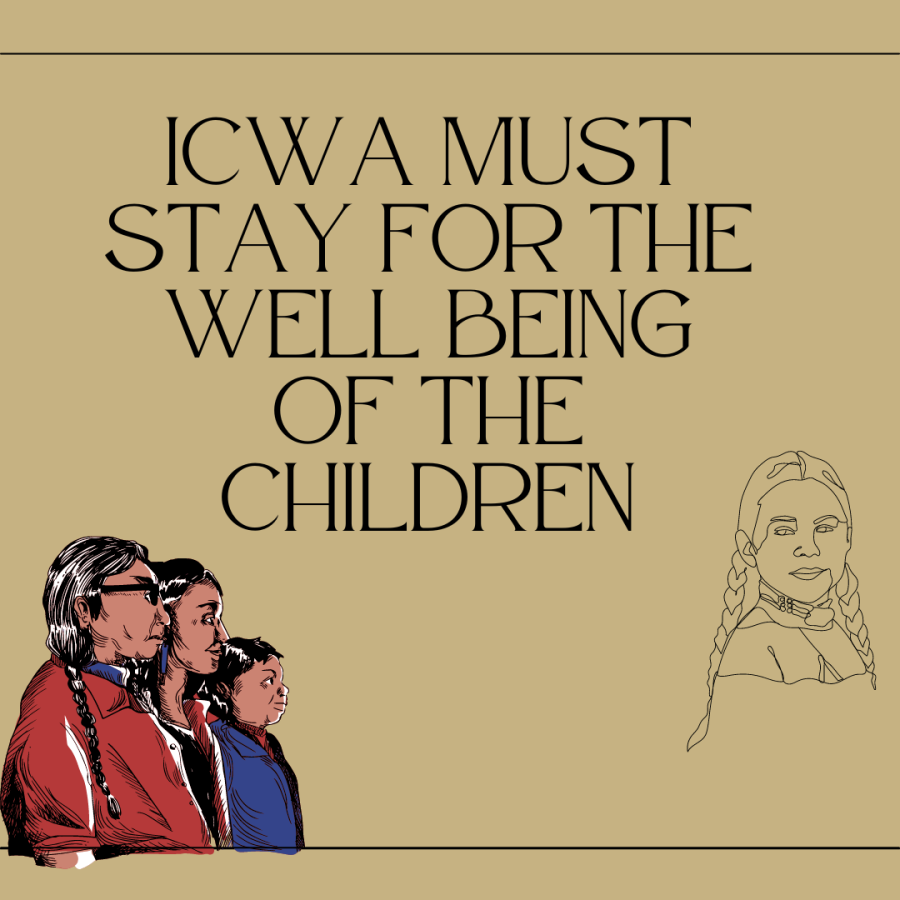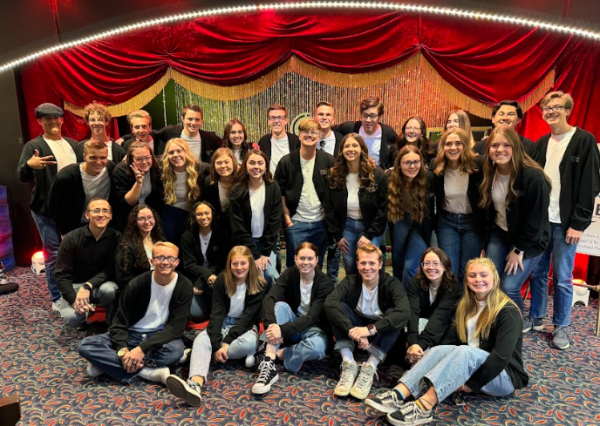Indian Child Welfare Act must stay for the well being of the children
ICWA is an important federal law that was passed in 1978. The Indian Child Welfare Act was initially passed because Native American children were being taken from their families and placed with white families/parents. There’s a chance that the government thought that the kids would be better off with white parents and forced assimilation. Hypothetically following the same thought process as the Indian Removal Act, the policy was referred to as “Kill the Indian and save the Man.”
After the government realized how messed up this actually was they passed ICWA, which protects Native American children who are in the foster care system or up for adoption by ensuring that they would end up in their families/tribes or at a minimum stay in Native communities.
Nearly 48 years after ICWA was passed it is now being battled in the Supreme Court on November 9, 2022. The Brackeens happened to foster a Native American child and sued for custody. They stated that ICWA violates the Constitution in at least 4 ways. The Supreme Court decided to hear them out on the “issue.” The name of the hearing was Haaland v. Brackeen.
If the Supreme Court overturns ICWA that means Native American Children will no longer be truly protected under federal law and any family has the right to adopt these children and remove them from their culture/customs. While not all the people who could adopt them will try to strip them away from their heritage and culture, you can never rule out the possibility of it happening.
When Heather Amado, the Alpine Native American district director, was interviewed she explained her feelings on this case. “I can see why they would think it was a good idea to place native children outside of native families because they’re removing them from the “problem” or creating a safe environment,” Amado said. “When you grow up and you do your journey to find out who you are, it’s always gonna come back to ‘Who am I and where do I come from?’ or ‘What does it mean to be Native American or any other culture you belong to?’ It would just be hard for that child to create that path. Especially if they’re growing up in an environment that has no connection to their beginning or who their parents and grandparents are.”
If the children are separated from their families, cultures, customs, their way of life, then their culture and customs will become sparse once more. They’ll have to repeat the process of relearning and refining most of the stuff that they have recently found after 100-200 years of colonization. And now they’ll probably have much less to work with, way less to aid in rebuilding it all. They had a low amount to begin with. If it happens another time, it will be far more sparse. And as Amado said, “Who is to say that … family is going to provide that discussion or create those connections?
“If people are against it I can see that they’re looking for a quick fix to create a safe environment for this child. In the long run, I don’t see it being the result of a problem that was created a long time ago through historical events that have happened in native communities …” Amado said. “I can see both for it and being against it but I feel like [ending ICWA will] cause more trauma and a disconnect from the community that they’re coming from.”
She can understand both sides but she does not agree with going against ICWA. If we go against it and overturn it, who will guide the kids who wanna know about their culture, their families, their heritage.
ICWA must stay and not be questioned. Not just for the children but for the rest of the community as well. These kids need to have a way to connect to their past and have people who lived that past.





